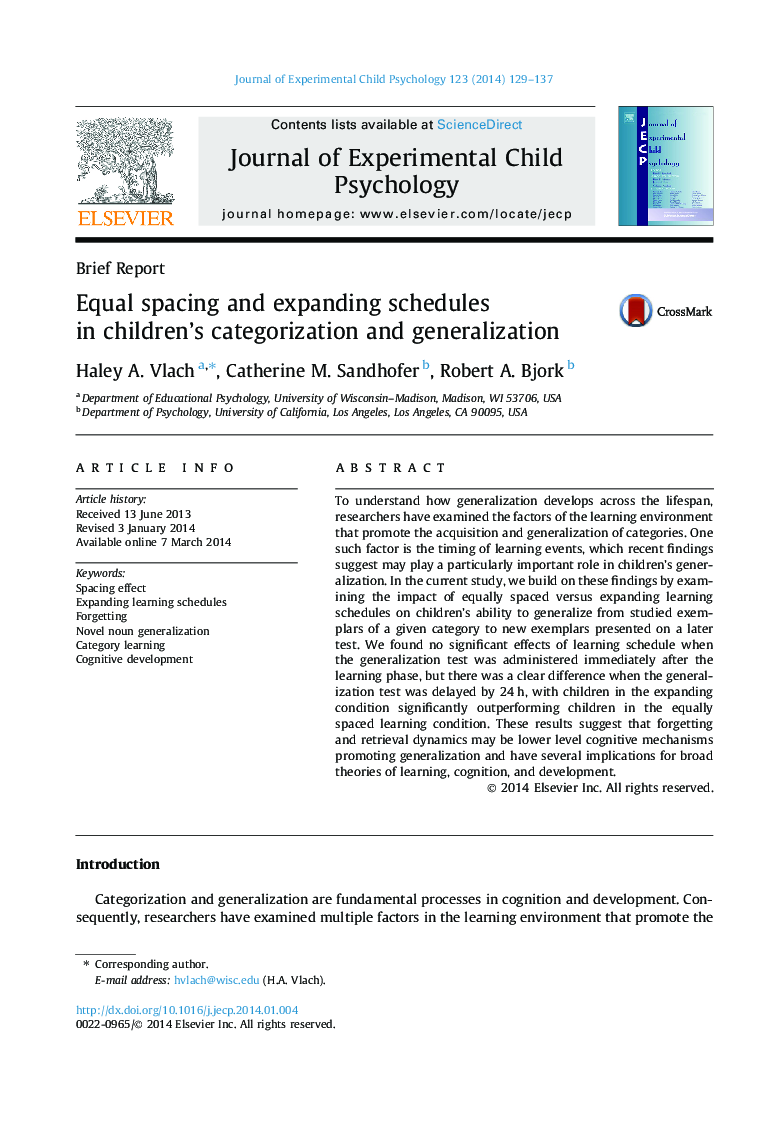| Article ID | Journal | Published Year | Pages | File Type |
|---|---|---|---|---|
| 7275537 | Journal of Experimental Child Psychology | 2014 | 9 Pages |
Abstract
To understand how generalization develops across the lifespan, researchers have examined the factors of the learning environment that promote the acquisition and generalization of categories. One such factor is the timing of learning events, which recent findings suggest may play a particularly important role in children's generalization. In the current study, we build on these findings by examining the impact of equally spaced versus expanding learning schedules on children's ability to generalize from studied exemplars of a given category to new exemplars presented on a later test. We found no significant effects of learning schedule when the generalization test was administered immediately after the learning phase, but there was a clear difference when the generalization test was delayed by 24Â h, with children in the expanding condition significantly outperforming children in the equally spaced learning condition. These results suggest that forgetting and retrieval dynamics may be lower level cognitive mechanisms promoting generalization and have several implications for broad theories of learning, cognition, and development.
Related Topics
Social Sciences and Humanities
Psychology
Developmental and Educational Psychology
Authors
Haley A. Vlach, Catherine M. Sandhofer, Robert A. Bjork,
